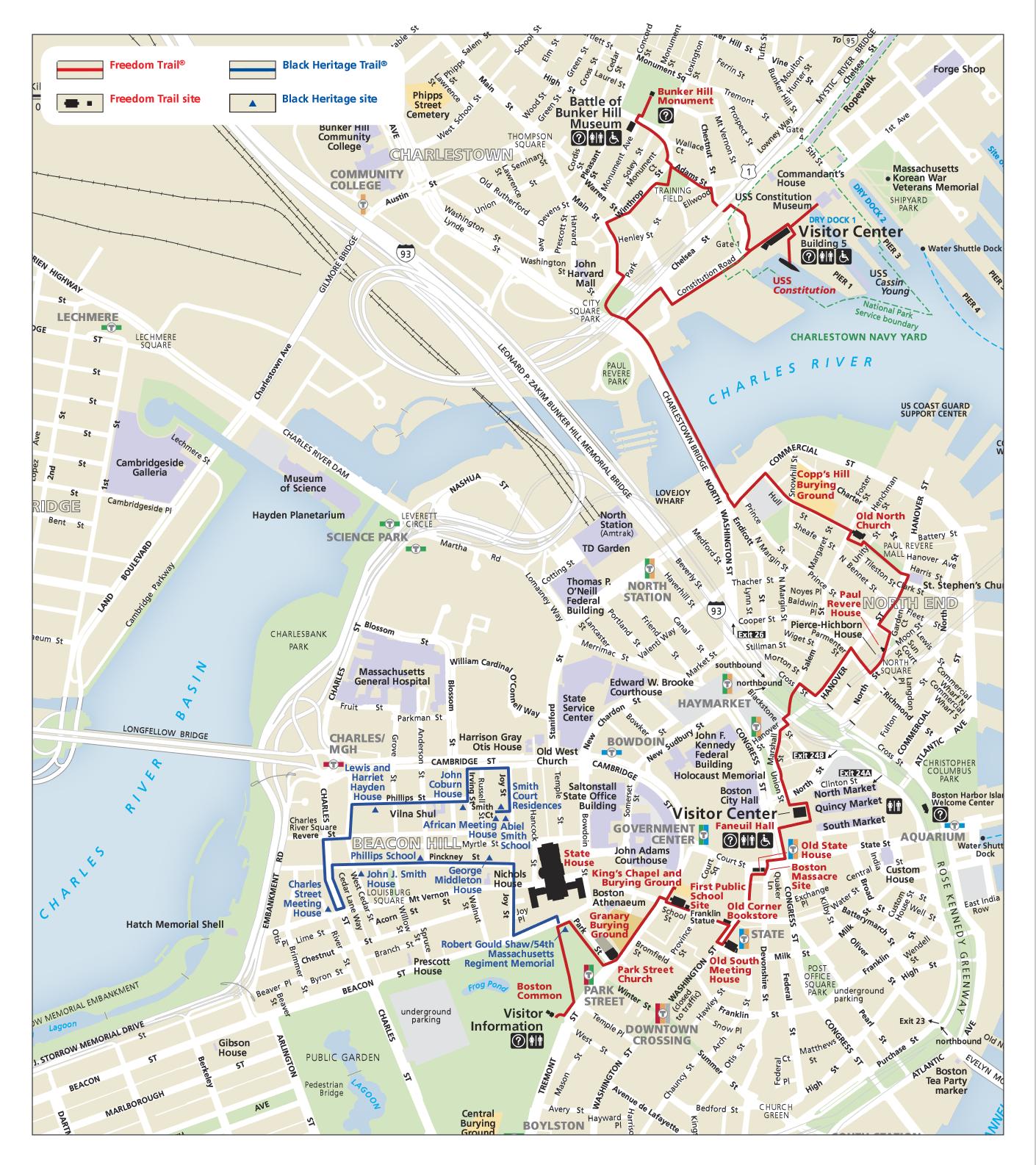Copp's Hill Burying Ground
Copp's Hill Burying Ground
Hull Street Boston, Massachusetts 02113
Official WebsiteFreedom Trail Official Website
Freedom Trail map
About this Location
Named after shoemaker William Copp, Copp’s Hill Burying Ground is the final resting place and burying ground of merchants, artisans, and craftspeople who lived in the North End.
Located on a hill on which a windmill once stood, the land was given to the town. Copp’s Hill was Boston’s largest colonial burying ground, dating from 1659.
Some notables buried in Copp’s Hill are fire-and-brimstone preachers Cotton and Increase Mather, two Puritan ministers closely associated with the Salem witch trials, and Black Freemasonry founder Prince Hall. The burying ground also holds Old North Church sexton Robert Newman, the man who hung the lanterns on the night of Paul Revere’s midnight ride, and Edmund Hartt, builder of the USS Constitution. Countless free African Americans are buried in a potter’s field on the Charter Street side of the site. Because of its height and panoramic vistas, the British used this vantage point to train their cannons on Charlestown during the Battle of Bunker Hill in 1775.
About Freedom Trail
See all hotspots at Freedom Trail
The Freedom Trail is a 2.5-mile-long path through Boston that passes by 16 locations significant to the history of the United States. Marked largely with brick, it winds from Boston Common in downtown Boston through the North End to the Bunker Hill Monument in Charlestown. Stops along the trail include simple explanatory ground markers, graveyards, notable churches and buildings, and a historic naval frigate. While most of the sites are free or suggest donations, the Old South Meeting House, the Old State House, and the Paul Revere House charge admission. The Freedom Trail is overseen by the City of Boston’s Freedom Trail Commission and is supported in part by grants from various nonprofits and foundations, private philanthropy, and Boston National Historical Park.
Features
Restrooms on site
Wheelchair accessible trail
Entrance fee
Content from Official Website and Freedom Trail Official Website
Last updated January 14, 2024
